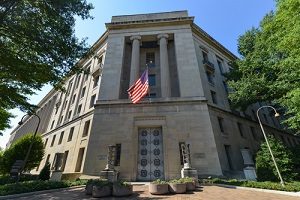DOJ Discusses Its 2020 Healthcare Fraud Enforcement Priorities

In comments at the 2020 FBA Qui Tam conference, the Department of Justice reaffirmed its strong commitment to pursuing fraud under the False Claims Act and emphasized its particular focus on rooting out healthcare fraud.
Jody Hunt, Assistant Attorney General in the Civil Division of DOJ, was encouragingly forceful in his comments about the critical role of the FCA in protecting the public fisc—and the patient population—from healthcare fraud. These remarks come on the heels of DOJ’s announcement of its typically strong 2019 results from FCA enforcement, including $3 billion recovered, largely (over 80%) from healthcare cases.
Hunt laid out three primary areas of healthcare fraud that DOJ is currently focusing on. The first is upcoding fraud within managed care programs, including Medicare Advantage and Medicaid Managed Care. In particular, Hunt called out a type of Risk Adjustment fraud in which companies review medical charts and submit only the upside results. In other words, they act on the results that get them more money, but not the ones that show they have been overpaid. As Hunt put it, as quoted in Law360, “They simply ignore the unsupported diagnosis codes.”
With a recent study from the GAO indicating that $6.7 billion in Medicare Advantage payments in 2017 were based solely on chart reviews, this is a welcome focus by DOJ. The government, along with Constantine Cannon whistleblower attorneys, is pursuing this type of fraud allegation in several intervened FCA litigations, including its flagship case against UnitedHealth Group. It was also the allegation at the core of the settlement with Freedom Health and Optimum Healthcare, which was featured in the New Yorker.
Second, Hunt noted a focus on nursing homes, presaging the later announcement by the Attorney General of DOJ’s National Nursing Home Initiative. This coordinated effort between DOJ’s Elder Justice Initiative and the U.S. Attorneys’ Offices will focus on entities providing grossly substandard care in nursing homes. While not itself explicitly relying on the FCA, the Initiative will plainly use all the tools at its disposal, including whistleblower claims under the FCA, to put a stop to this abusive behavior.
Finally, Hunt noted a coming focus on fraud involving electronic health records. Just weeks earlier, on January 27, 2020, DOJ had announced that EHR vendor Practice Fusion had agreed to pay $145 million and admitted that it had used its EHR software to influence physician prescribing of opioids after soliciting and receiving kickbacks from the involved pharmaceutical companies. But EHR fraud can also involve other schemes, ranging from misrepresentations to the government to secure EHR incentive payments to the provision of free or reduced EHR systems as a form of kickback.
In addition to these three priorities, Michael Granston, Deputy Assistant Attorney General, flagged a fourth area of focus in comments the next day: telemedicine fraud. Like other types of healthcare, telehealth is susceptible to fraud in coding and billing, as well as kickback schemes.
Given last year’s strong results and a clear set of priorities for 2020, it is clear that DOJ has an active year ahead of it fighting fraud in the healthcare system. If you have information that a person or company is defrauding federal healthcare programs and would like to talk with us about whether you have a whistleblower case, please contact us confidentially.
Read More:
- Fraud in Government Telehealth Programs: How to Report it Under the False Claims Act for a Whistleblower Reward
- Fraud Related to Electronic Health Records
- False Claims Act
- Federal Audit Reveals Billions of Dollars in Medicare Advantage Overpayments
- Fraud in Managed Care Programs
- Risk Adjustment Fraud in Healthcare
Tagged in: Electronic Health Records, FCA Federal, Government Programs Fraud, Healthcare Fraud, Risk Adjustment Fraud,